Allnight Fever
The centre of the universe for British ‘contemporary’ folk, blues and beyond was a cellar at 49 Greek Street, Soho. Ian Anderson celebrates the 50th anniversary of those heady days and nights of Les Cousins.
from fRoots 377, November 2014
Be careful with bestowing time-sensitive names on emerging movements. Art Nouveau which flourished at the beginning of the last century is now Art Very Vieux. Modern Jazz of the 1950s is now antique, and the New Wave of the late ’70s has long since crashed on the beach. And so it was with the sounds christened Contemporary Folk in the 1960s, now irrevocably tied to nostalgia for that golden age of post-war youth culture of half a century ago. But it had an extraordinary blossoming in its day, and the hothouse and nursery for it all was a basement club at 49 Greek Street in London’s Soho.
On a grey day earlier this summer I rang on the doorbell of a flat in Frith Street and entered a hospitable folk Tardis, spinning back nearly five decades at the invitation of Diana Matheou, wife of the late Andy Matheou (or Matthews, as many knew him), whose parents Loukas and Margaret owned the restaurant below which the club was housed.
But first, a bit of pre-history. Veteran skiffler Ron Gould recalls the years BC (Before Cousins) when the venue housed the Skiffle Cellar. “As far as I remember the Skiffle Cellar was founded by Russell Quaye and Hylda Syms in 1956. The Skiffle Cellar was one of many rival skiffle venues in the area at the time. The most thriving was John Hasted’s club in Gerrard Street; if you went to one you were unlikely to go to the other or The 2i’s. It looked very much like a cave, as did most Soho cellars. After Bruce Turner left Humphrey Lyttleton and formed his own Jump Band, John Jack became their manager and took over the Cellar on Friday and Saturday nights in 1957 for all-nighters, with Bruce Turner’s Jump Band as the headliners.”

“There were also other bands and skiffle groups, my one The Red Nerk Four played every other Friday night, we came up from Dartford and once the young Mick Jagger and Brian Jones came with us. There was one big night I remember, Jazz Against Apartheid, an all-nighter to raise money for Anti-Apartheid. It was a big night with Bruce, Humph and a special guest. We put together a band with me on bass, Diz Disley on guitar, Bruce and John Dankworth on altos, Lennie Hastings drums and Brian Lemon piano. Cleo Laine sang three songs. It was just about the highlight of my musical career.”
‘Les Cousins, Club Continental’ opened on Sunday 4th October 1964, was unlicensed, opened every night and had all-nighters with live bands. “However it didn’t really take off,” says Diana. “At some point there was a falling-out with Phil. Loukas told Andy to sit in each night to make sure everything was above board. Perhaps sensing a change was in the air, Phil asked Noel Murphy along to compère an all-nighter and musicians told each other there was a place to play – much like Chinese whispers. I do know that Phil was dismissed and that Andy was already listening to Dylan and was totally disinterested in running a discotheque. I’m sure these and many other factors all came together – the time, place and people were right and Les Cousins the iconic folk and blues club was born.”
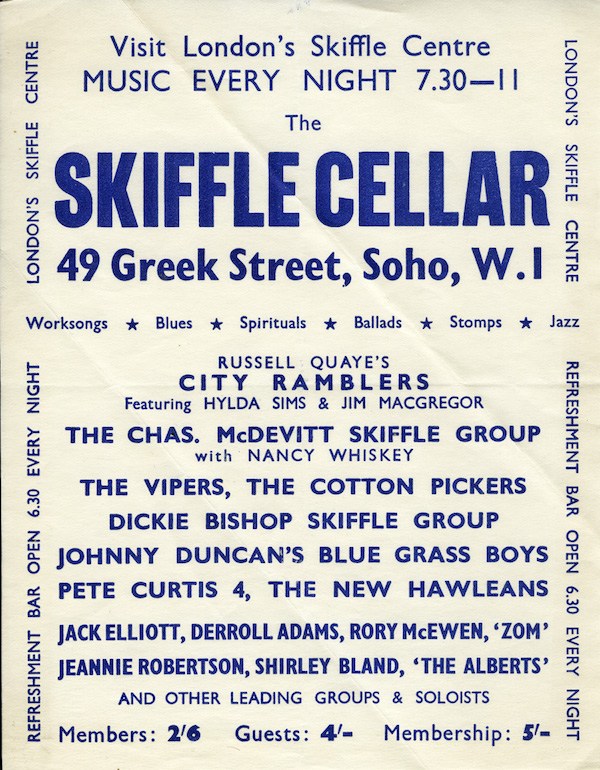
The rebirth opening date that is often quoted is 16th April 1965. Early memories and pictures have it with sports car photos on the wall, plus a wagon wheel and fishing nets to make the disco a bit folkier.
Al Stewart, who at that time had a residency at Bunjies on the fringes of Covent Garden, remembered those early days in his interview in fR367/8. “I was talking to Noel Murphy and he said there was a brand new folk club just opened up a couple of blocks away which turned out to be Les Cousins. So Murphy said ‘Do you want to go over and check it out?’, so I said ‘fine’. I went over with Noel, I went down the stairs – there were maybe twelve people down there and they were all crowded round one guy playing the guitar, and that of course was Bert Jansch …”
“So I’d work at Bunjies and then I’d go over and hang out at Cousins and watch the people. I think it did all-nighters very quickly which is actually where I got my first gig, because Phil – who used to run it before Andy – by about three o’clock in the morning he’d basically had it and wanted to go home, so what he was looking for was someone who’d basically put people on and off. I got the gig as the compère of the Cousins which I had for a couple of years. It was my job to put people on and take them off which meant that round about 4 o’clock in the morning when everyone was asleep I could get up and start doing my own songs!”
The venue took off very quickly. Not only did it have an adventurous booking policy and a growing in-crowd, but it also had those all-nighters on the weekends.
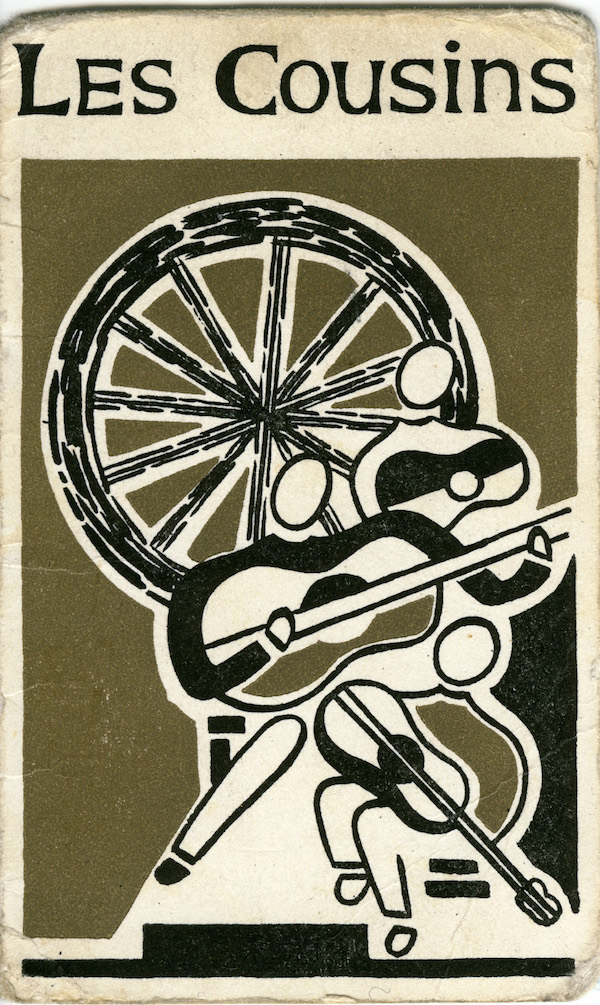
Les Cousins membership card, 1967.
For impecunious youths like myself, hitch-hiking up to London to see all these amazing artists who were being advertised in the Melody Maker Folk Forum each week and enjoying growing fame nationwide, it wasn’t only a musical honeypot but the cheapest hotel in London. And once you’d become accepted as a performer, you even got in for free.
“April 1966: Al Stewart £3. Diz Disley half the door. Trevor Lucas £8. Davy Graham £15. Long John Baldry £15 for the all-nighter. Sandy Denny, John Foreman… Spider John Koerner £25! (I was probably there for that, 10th April 1966)… Mox & John Lemont. Tuesday 26th, Van Morrison £3. Wednesday 27th, Jo Ann Kelly £6. Malcolm Price, Gerry Lockran, Sandy Bull (the American equivalent to Davy Graham), Bert Jansch, Sandy Denny… what a week!”
“June 1967. Friday, Tom Rush; Diz Disley for the all-nighter. Saturday, John Renbourn; Long John Baldry for the all-nighter. We go through to the following week… Friday 9th June, Sandy Denny in the evening, Cliff Aungier doing the all-nighter. Saturday 10th, Bert Jansch; all-nighter Noel Murphy and Wizz Jones. Friday 16th, Indian music.
Saturday 17th, Alex Campbell in the evening, Davy Graham on the all-nighter. Friday 23rd, Roy Harper evening, Al Stewart all-nighter. Saturday 24th, Young Tradition evening, Alexis Korner the all-nighter. It’s amazing, isn’t it?”
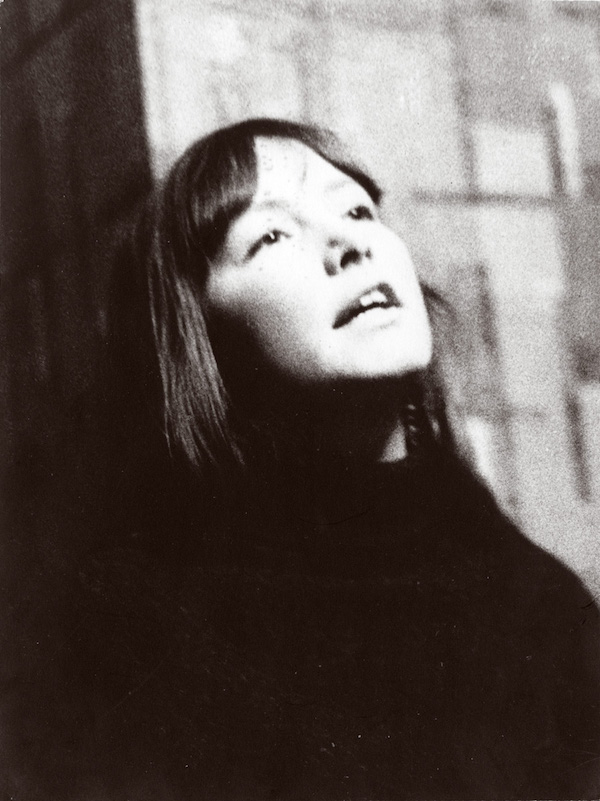
Diana Matheou 1966. Photo: Chris Field
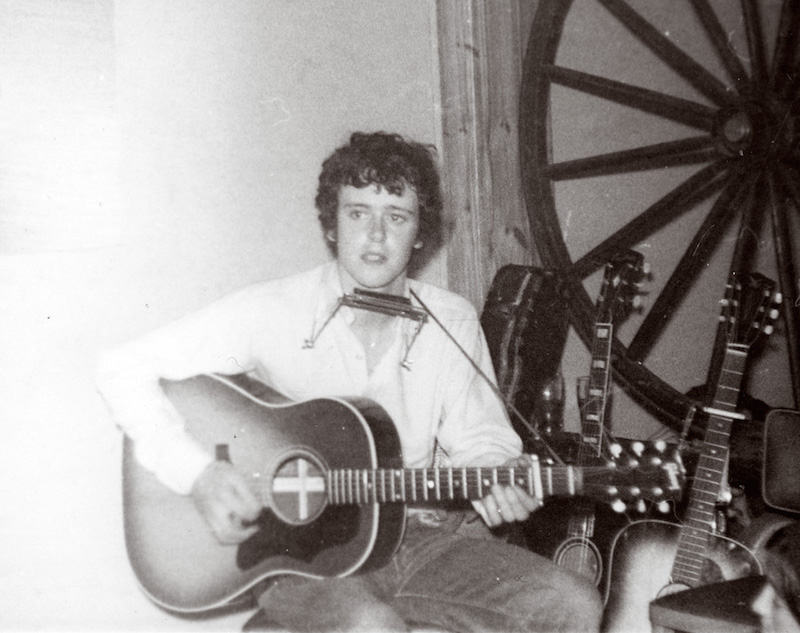
Donovan at Les Cousins.
In her book about the era, A Blues For Annie (available via Amazon, recommended!), Annie Matthews recalls arriving there around that time. “Al Stewart, who played at Bunjies, was finishing the night by going to Les Cousins. A crowd were going with him. So we walked the several blocks or so to Greek Street, and we came to a narrow doorway. It would have been easy to miss. There was a folded sign by the door that had the name of the performer written on it. A steep flight of stairs led down into darkness. At the bottom was a stout young man with a round face and short black hair. He was collecting money from people as they went in. I followed everyone in to yet another dark cellar. It was a very large one. There was a small stage with a piano behind it, and church pews for seats all around it. At one end of the room was a section that was behind a counter where a young man sold sodas, coffee, and sandwiches. He had an Oriental cast to his face and a Fu Manchu moustache. Jet black hair swung around his ears. He bounced around to the music as he served customers coffee. The club was thick with cigarette smoke. Everyone was smoking. I stayed there all night.”
Mike Cooper remembers that “the all-nighters on a Saturday were a trial by fire of stamina and patience both for audience and performers. Leaving there on Sunday morning we would stagger bleary-eyed into a Greek Street being hosed down and swept clean, ridding all trace of the previous night’s reveries, and going for what was sold as coffee in glass cups at the Pollo Bar (still there but don’t read the Trip Advisor reviews) around the corner at 20 Old Compton Street.
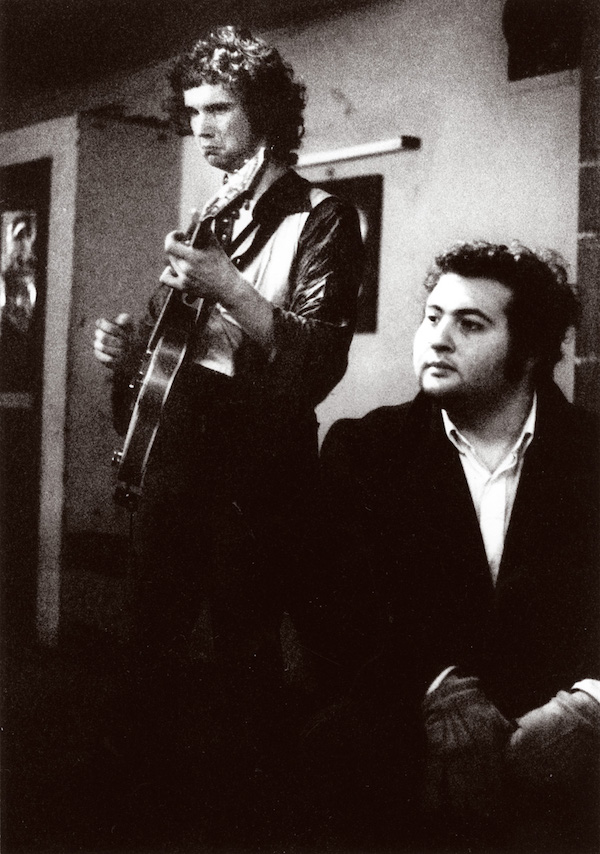
John Martyn & Andy Matheou. Photo: Ray Stevenson.
“But when you played Les Cousins you had joined ‘the scene’; been acknowledged, made it, whatever that meant at the time. It was the Vatican and Mecca and Jerusalem of the folk scene.”
“Iwandered outside in the interval of one session to roll another roll-up and Andy who ran the place was talking to a short, curly-haired guy in a brown suede jacket, who looked remarkably like Tim Buckley. So much so that I told him. He replied, with a smile, ‘I am Tim Buckley’ – to which I replied ‘Yes and I’m Tim Hardin.’ It was Tim Buckley, I later discovered, and lost the opportunity to tell him how much I admired his music and I still do. David Bowie turned up once as well and wanted to play but the guest list was full for that evening. Sorry David.”
You never knew who would turn up to play on an all-nighter. The singer-songwriter introduced as Steve Adams, who grew up to be Cat Stevens. A short American who Noel Murphy would stick on at 4am to try out some remarkable song he’d just written was called Paul Simon. A wonderful set from another American who’d come across to experience Cambridge Folk Festival but we already had his records: Eric Andersen. A really nervous, undistinguished singer-songwriter called Nick Drake who sent the audience to sleep. I have fond memories of a night when Spider John Koerner put Al Jones and myself on for a small-hours floor spot and Davy Graham got up and played bongos with us, and of Ron Geesin disembowelling the piano, passing bits of it out into the pews while playing, searching for an elusive sound. And of transporting music from the Third Ear Band …
Andy Matheou’s booking methods were delightfully ramshackle. Once he liked and trusted a performer, they’d be booked every few weeks. I remember when I was living in London over the blues boom winter of ‘68 / ’69 I’d get the tube in from Notting Hill every Wednesday lunchtime to get a Melody Maker at the news stand at Tottenham Court Road tube station, hot off the press.
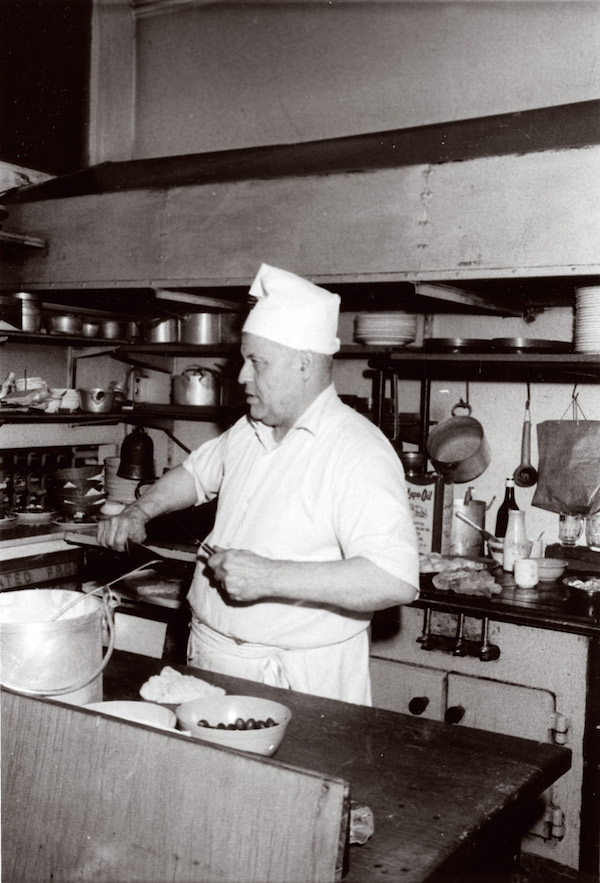
Loukas Matheou
That was how you found out if you’d got a gig at the Cousins that coming weekend! But you didn’t mind because not only was it a great gig, those listings were pored over by folk fans and organisers all over the country and if you were listed there, you’d – as Mike Cooper said – made it. It was a guaranteed career boost.
B ack to the diary: “October 1968: Friday 4th Michael Chapman and Saturday 5th, Jackson C Frank and Ron Geesin. Saturday 12th Young Tradition, Mike Cooper and Peter Sarstedt. Thursday 17th October – Al Jones and Ian Anderson (beginning a residency! Yay! There you go!). Saturday 19th October Al Stewart, evening; John Martyn on the all-nighter – Al Stewart was up to £20 by then! Gordon Giltrap, Sally Oldfield, The Strawbs, Andy Fernbach…”
As well as becoming an accomplished young blues singer and harmonica player who later joined Panama Limited, recording for EMI Harvest, Annie Matthews also ended up working there. Again from her book: “There was an opportunity to work behind the bar. I talked it over with Mr Matheou. The other person who applied for the job was a homeless man nicknamed Divinity. When his wife had died he had some sort of mental breakdown and lost his home, and ever since then he had been going around the soup kitchens and shelters. He did not have a big interest in music but Cousins was open all night. Mr Matheou suggested that he get a real job, and offered to give him money to buy a suit, but he refused.”
“One of our acts at Cousins, Ralph McTell, had a huge hit [The Streets Of London] telling a young woman who was complaining about her life that homeless people had a tougher lot, and that she should be grateful for her life. I had this nasty feeling that I had inspired this song.”
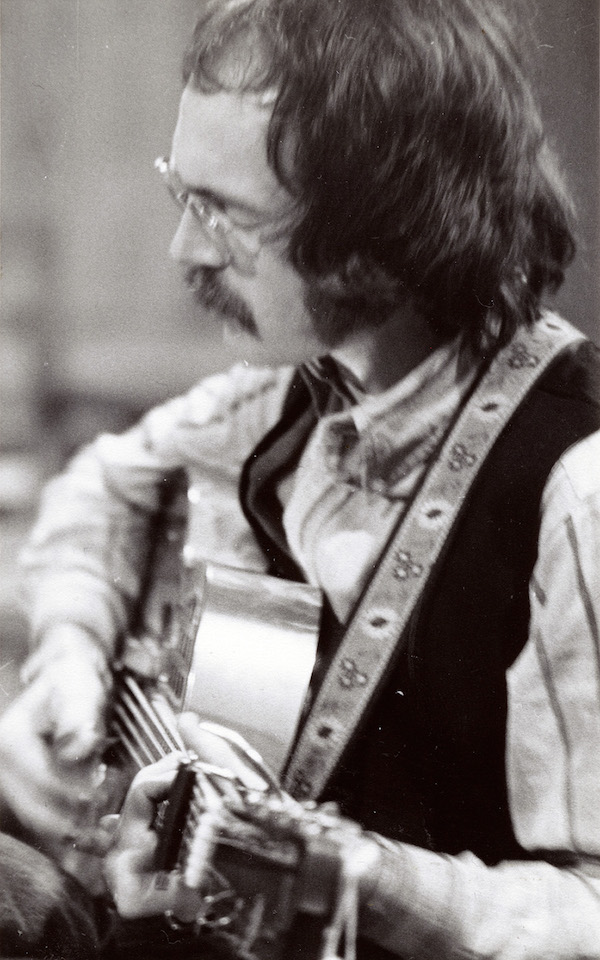
“I hoped not. I speculated as to whether Ralph McTell had heard from Divinity that some young woman had got the job of selling refreshments that he had applied for, and that she was full of self pity when she had a good life in the suburbs.”
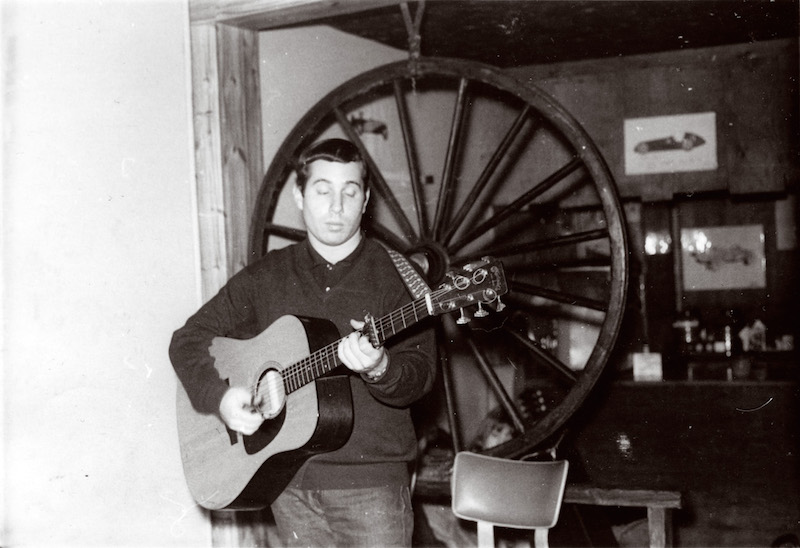
“Some other street performers that associated with him found out about Les Cousins through him. ‘Old Meg’ sang Danny Boy in a high trembling warble. That seemed to be the only song that she knew. ‘Paris Nat’ Schaffer played the accordeon and sang. He wore a peaked cloth hat to cover his bald head. He had some comedy songs that he performed again and again.”
Signed by agent Julia Creasey to Roy Guest’s Folk Directions agency, Diana started going to the Cousins regularly and by 1969 she and Andy Matheou had become an item. “It was like being at the centre of the universe. After I became pregnant, I moved in here in 1970. We were running the club from here, and I’d push Em, our little baby, in the pram, put her in the corridor of the restaurant upstairs, go downstairs and run the club. I did the door for a couple or three years.”
“Some singers and musicians became close friends to Andy and me, in particular John Martyn. He and Andy had a bond and a recognition beyond the ordinary. It was that which John initially wrote about in May You Never. One summer day he bounded into the Frith Street flat with the DJ Jeff Dexter and told us, ‘I’ve written a song for you.’ He and Andy spent loads of time together. Bev and John had a flat in Denning Road. Bev got pregnant with her daughter about two months before me so we shared our pregnancy and I went over to Denning Road quite a lot. Nick Drake was there as well, and Bridget St John.”
“The Matheou family’s contribution is hardly ever mentioned as, understandably, it’s the music and radiancy of the time that people remember most. However the fact of the family’s nurturing was significant. The young man who Andy was had an honest, fearless nature, a capable, curious mind, a generous heart – like his parents – and loved music. The Matheou family were the right people in the right place.”
“Andy was quick to discern what was authentic and, not being materially driven, became part of the family of musicians and the ethos of the time. Many turned up at the family flat in Frith Street, were fed and sometimes housed there too. Jackson C Frank truly became part of the family while he was in London, referring to Loukas and Margaret as ‘like his parents’.”
“Anyone coming into the restaurant kitchen hungry didn’t stay that way for long. Loukas would listen to the hard luck stories, responding with wisdom, dry wit and food.”

“Many times he sat at the door of all-nighters too, wanting Andy – his only child – to have the freedom of youth he’d never known. He and Margaret had great good hearts and the whole family were a cornerstone in the success and establishment of what ‘Cousins’ was.”
We’re at the 1972 diary now. John Martyn, Tommy Yates, Nick Drake, Sam Mitchell, Jo Ann Kelly, Bridget St John, Trevor Lucas, Duffy Power, Steve Tilston, Isaac Guillory, Linda Lewis, Dando Shaft, Plainsong, Gasworks, Davy Morrell, Kevin Ayers …
Les Cousins closed in April 1972 having run its natural course. By then, many of the artists who had honed their craft on the little Cousins stage had agents and managers and were commanding enormous fees on the growing 1970s college circuit. The Cousins couldn’t compete.
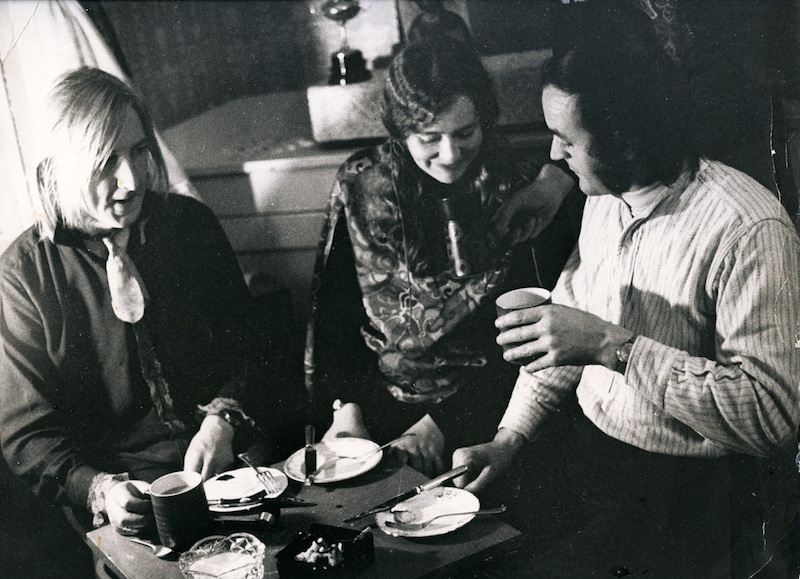
As Diana recounts, Loukas and Margaret returned briefly to Cyprus but within a year came the Turkish invasion and they were forced to come back to Soho. Margaret was dying of cancer. Within eighteen months Loukas lost his home, his land and his loving wife. “Loukas then went to Barking in East London to help his brother, also made a refugee who’d lost everything, helped him with a kebab shop, and he said to Andy ‘Listen boy, you’ve got a daughter and you’re not earning any money, and I’m going to open a wet fish shop in Barking. You should come and do it with me.’ So he did. I gave up my teaching and I went and did it too. We did that for eighteen years. Still living here, we’d commute. But it was beautiful. So we went into that, and it was as far apart from what we’d done before as you can imagine. But it gave us a very broad life. And we kept close to some of those folk who we’d always been close to through the club. We always kept in touch with Bert and Roy.”
Sadly, Andy Matheou passed away in 2005 from a heart attack brought on by diabetes, leaving Diana the custodian of the Cousins history and many happy memories. But there’s one sour twist to the story. There’s now an organisation and record label calling itself Les Cousins and it even uses the old Cousins logo from its membership cards.
“Something called ‘Les Cousins Music’ can be found on the internet run by a man called Mark Pavey,” says Diana. “He had nothing whatsoever to do with the club and has used the name and provenance without permission. I need to let this be known to honour the Matheou family whose hard work and generosity were fundamental to the club’s existence. It’s a little like someone taking your music and putting their own name to it – much like Paul Simon did to Martin Carthy with Scarborough Fair all those years ago. This behaviour is in direct opposition to the ethos of the club.”
Really, Les Cousins deserves a book!
Shop
You can buy CDs and downloads at our online shop.
Writing
Technology (2002)
Photographers (2002)
English Country Dance Music (2003)
Is That All There Is? (2005)
Self Worth (2007)
Television (2008)
Musical Racism (2008)
Small Venues & the Folkistanis (2009)
Existential Stuff Crisis (2013)
Festival Challenge (2014)